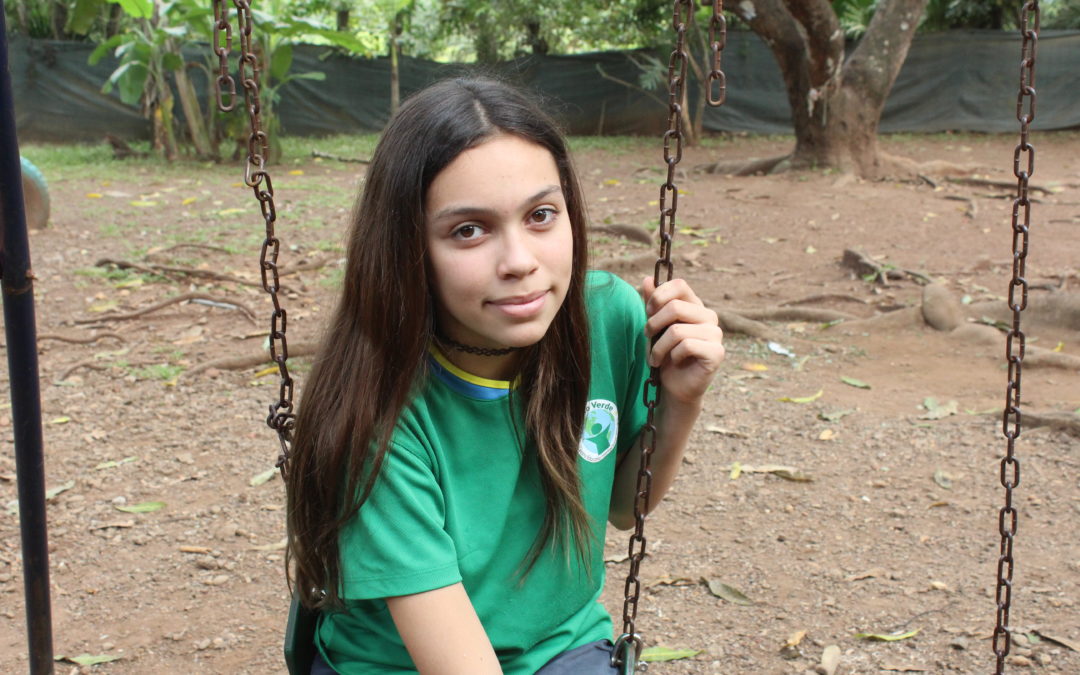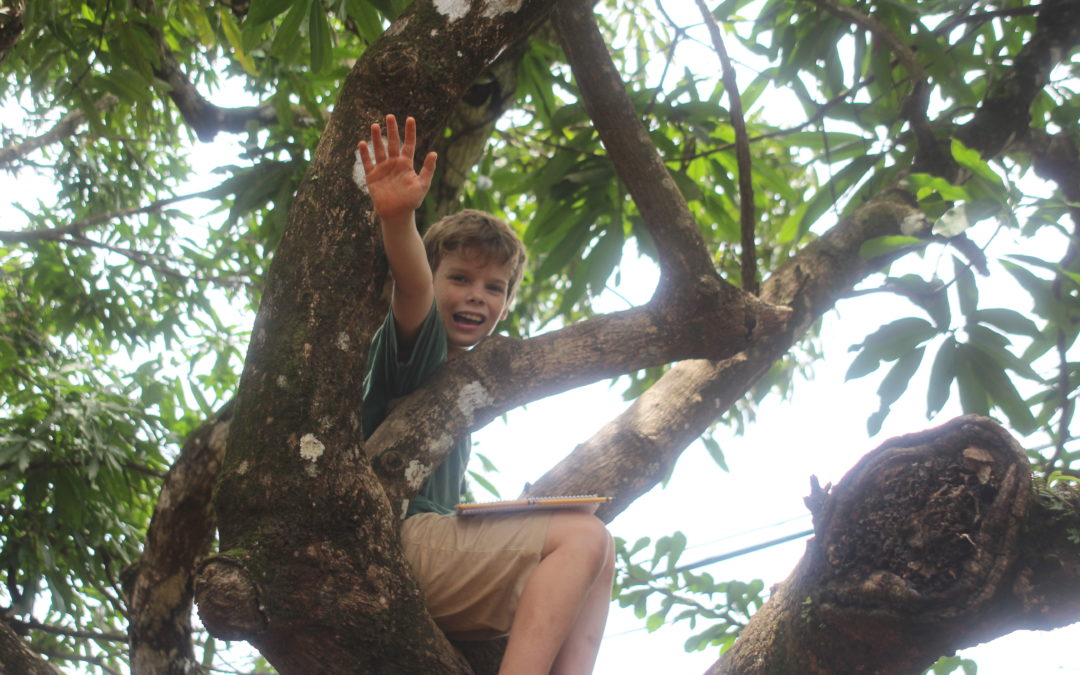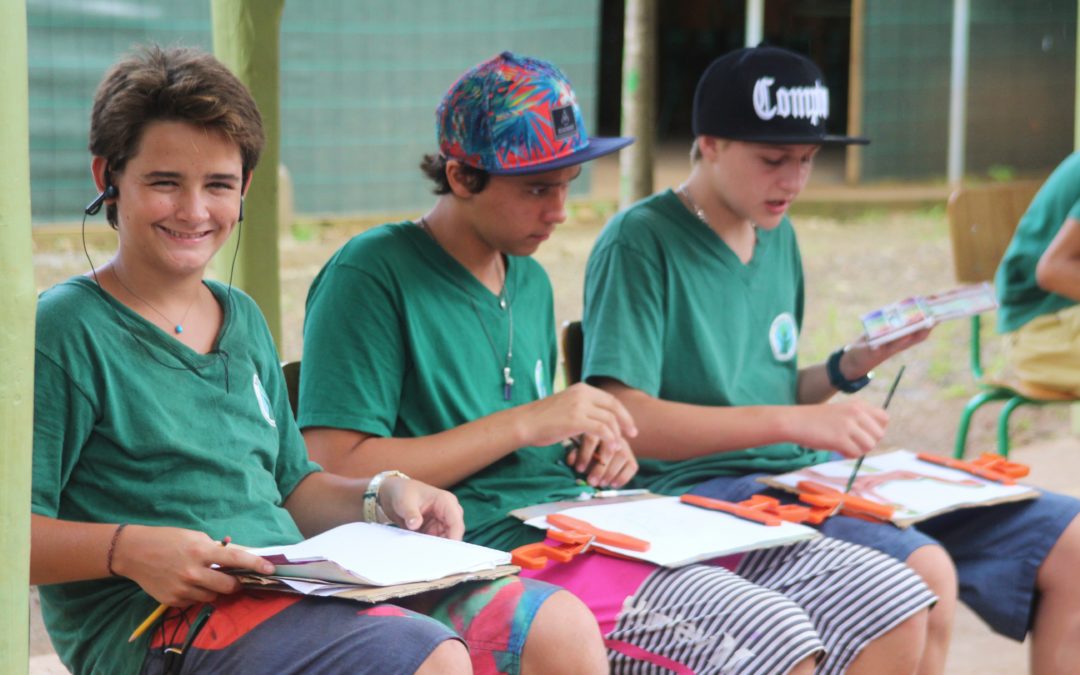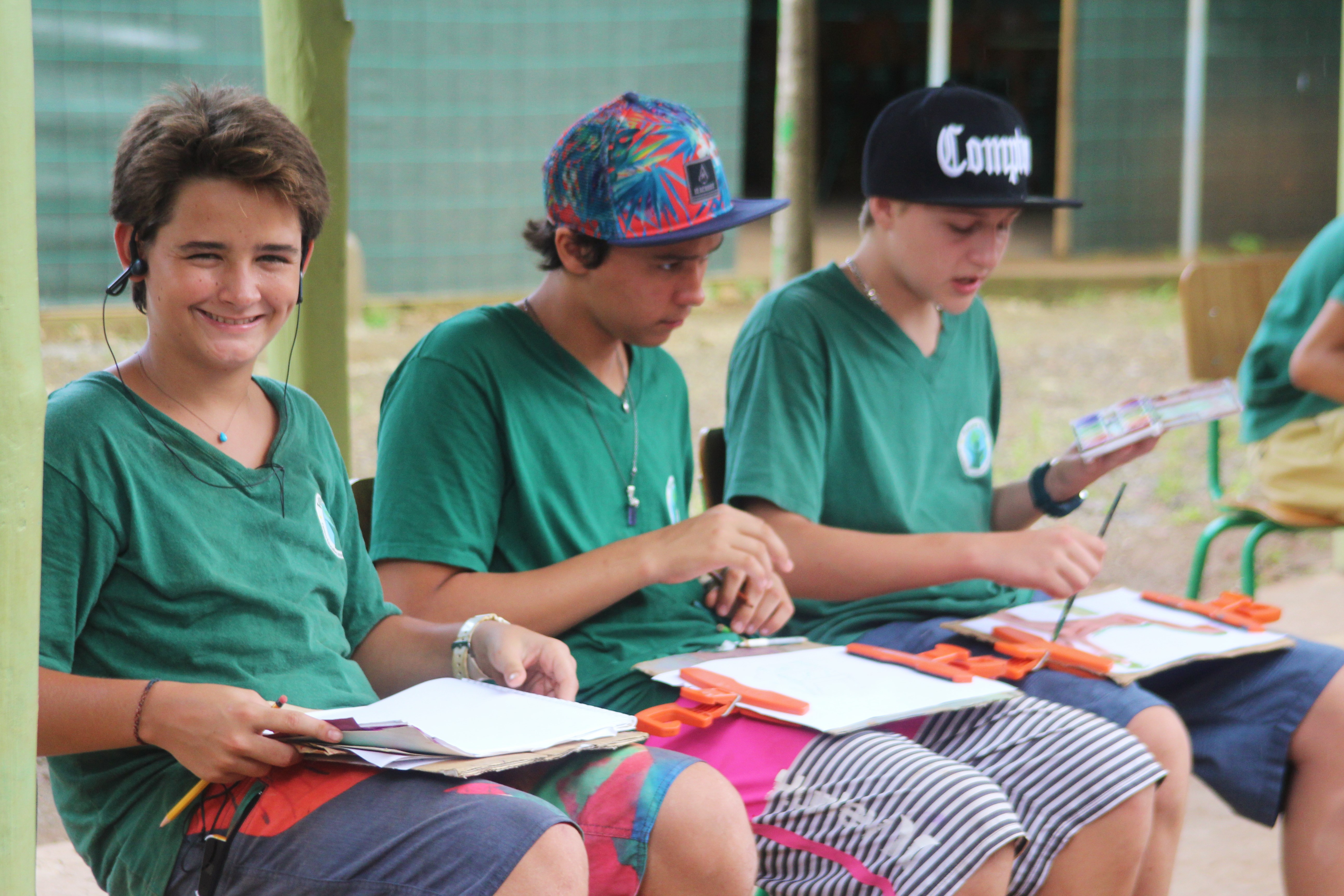
by Stuart Millar, IB coordinator | Nov 30, 2016

Reflective: We thoughtfully consider the world and our own ideas and experience. We work to understand our strengths and weaknesses in order to support our learning and personal development.
Every month I write something for the school newsletter. Every month a new attribute from the values and learner profile at Futuro Verde. Writing my newsletter article could easily become a habit. It would be easy to stick to a formula and churn out two hundred words or so about the attribute of the month. After 10 months my work would be done but would the tenth be any better or different to the first?
One can do the same thing over and over, but without a process of reflection there is no progress and improvement. ‘Practice makes perfect’ and ‘live and learn’ are common expressions, but only work if we build in a process of reflection. Sometimes that reflective process is a conscious process, but sometimes it happens without us knowing, almost instinctively. Asking ourselves questions is a valuable way to be reflective. Every month I ask myself if my past articles have been: Too long? Too short? Too complicated? Too basic? Too boring? Relevant to people’s lives and experiences? Thought provoking? I don’t always have answers to give myself. Sometimes we need to do more than just reflect on our own experience. We need feedback to understand our own strengths and weaknesses. I continue to question myself but also invite others to give constructive feedback and contribute to my development and my future articles.

by Stuart Millar, IB coordinator | Nov 30, 2016

Reflexivos
Tomamos en consideración el mundo, nuestras ideas y experiencias. Nos esforzamos por entender nuestras fortalezas y debilidades a fin de fomentar nuestro aprendizaje y desarrollo personal.
Cada mes escribo un artículo para el boletín de la escuela. Cada mes se explora otro valor del perfil de comunidad de Futuro Verde. El hecho de redactar mi artículo fácilmente se podría convertir en costumbre. Es decir, aplicar la misma fórmula y producir 200 palabras sobre el valor del mes. Después de 10 meses habría terminado el trabajo, pero ¿sería mejor o diferente el décimo artículo al primero?
Uno puede volver a hacer la misma cosa repetidas veces, pero sin un proceso de reflexión no hay progreso ni mejora. Pese a que ‘la práctica hace al maestro’ y ‘todos los días se aprende algo’ sean expresiones comunes, un proceso de reflexión es esencial para aprender. Algunas veces se trata de un proceso consciente, mientras que otras es algo que sucede sin siquiera darnos cuenta, como un instinto primordial. Una manera adecuada de ser reflexivos es hacernos preguntas. Cada mes me pregunto si los previos artículos fueron suficientemente relevantes y inspiradores o demasiado largos, complicados, básicos o tediosos. No siempre tengo las respuestas. De vez en cuando es necesario que hagamos más que reflexionar sobre nuestra experiencia propia. Dependemos de la retroalimentación para comprender nuestras fortalezas y debilidades. De mi parte, sigo cuestionándome, pero les invito a darme retroalimentación constructiva y a contribuir tanto a mi desarrollo profesional como a mis futuros artículos.

by Stuart Millar, IB coordinator | Oct 27, 2016

Equilibrados: Entendemos la importancia del equilibrio físico, mental y emocional para lograr el bienestar propio y el de los demás. Reconocemos nuestra interdependencia con respecto a otras personas y al mundo en que vivimos.
Pese a que la vida siempre será marcada por altibajos, como padres, tutores o profesores tenemos la responsabilidad de desarrollar la capacidad de resistencia de nuestros niños a fin de que puedan superar periodos de adversidad y restablecer el equilibrio y la normalidad. Las dificultades pueden surgir por una gran variedad de motivos, entre otros, frustración, desilusión, cambios, pérdidas, conflictos o humillación. La resistencia nace cuando nos sentimos satisfechos con nosotros mismos, cuando se cumplen todas nuestras necesidades y nos sentimos competentes y seguros. Sufrir depresiones, cerrarse, molestarse fácilmente, exagerar problemas, ser agresivos y rendirse rápidamente son todos indicios de que nuestros hijos no están haciendo frente a sus problemas.
¿Cómo uno le puede enseñar a sus hijos a no rendirse, a probar un enfoque nuevo y a mantener el positivismo para poder encarar los retos de la vida? Los adultos podemos ayudar de múltiples maneras. Muéstrale empatía a su hijo(a), háblale de tus propias frustraciones y de cómo las estás afrontando, sé optimista, utiliza un lenguaje positivo, prueba cosas nuevas, aliéntalo a seguir tu ejemplo y ayúdalo a afrontar retos grandes paso por paso. Lamentablemente, los humanos tendemos a recordar mejor las experiencias negativas que las positivas. Ayúdale a su hijo(a) a ser feliz para que le puedas recordar que después de la tormenta viene la calma. Toma la decisión de hacer algo divertido con su hijo(a) todos los días al ayudarle a desarrollar la costumbre de gozar de la vida.
Para leer y aprender más sobre el tema véase: Learning to keep a balance

by Stuart Millar, IB coordinator | Oct 27, 2016

Balanced: We understand the importance of balancing different aspects of our lives – intellectual, physical, and emotional – to achieve well-being for ourselves and others. We recognize our interdependence with other people and with the world in which we live.
Life has its ups and downs, but as parents, guardians or teachers it is our responsibility to provide the children in our care with the necessary resilience and coping skills to work through those periods in order for balance and normality to be restored. Those down times can come from a multitude of reasons, including frustration, disappointment, change, loss, conflict, or humiliation. Resilience comes from feeling good about oneself, feeling settled with all your needs met, and feeling capable and confident. Signs that our children are not coping might include bouts of depression, shutting down, getting upset easily, blowing things out of proportion, acting aggressively, and giving up quickly.
How does one teach our children to keep trying and not give up, encourage them to try a new approach, and to talk positively to themselves so they can cope and deal with the stresses life throws at them? Adults can help their children in lots of ways. Be empathetic and show you understand, talk about your own frustrations and how you are working through them, model optimism that things will improve, use positive language, try new things and encourage them to do the same, and help them break down big challenges into smaller more manageable chunks. Unfortunately, it seems to be human nature to remember the negative things in life more than the positive ones. Help your child be happy so you can remind them when times get tough that things will get better. Make a conscious decision to do one fun thing every day with your children and help them build a habit of enjoying themselves.
For a deeper exploration of the topic and to learn more, read: Learning to keep a balance

by Stuart Millar, IB coordinator | Oct 13, 2016

Somos conscientes de la importancia de equilibrar los diferentes aspectos de nuestra vida, intelectual, físico y emocional- para lograr nuestro bienestar y el de los demás. Reconocemos nuestra interdependencia con otras personas y con el mundo en el que vivimos
*sube y baja = juego de balanceo en los parques de niños
Las personas pueden sentir que el equilibrio implica partes iguales, por ejemplo, entre el trabajo, la familia, el ejercicio y el tiempo personal. Sin embargo, el equilibrio del ser no necesariamente tiene que significar división equitativa entre todos los aspectos de nuestras vidas. Se trata de encontrar la cantidad correcta de cada una de estas cosas para que lograr el equilibrio dentro de la vida para asegurar la salud de cuerpo y mente, y afectar positivamente a los que te rodean.






